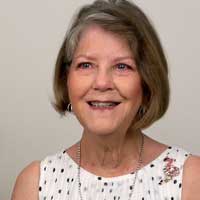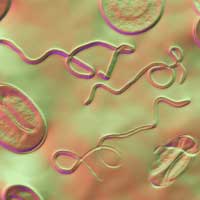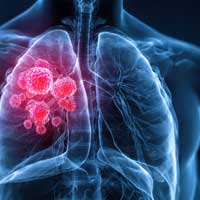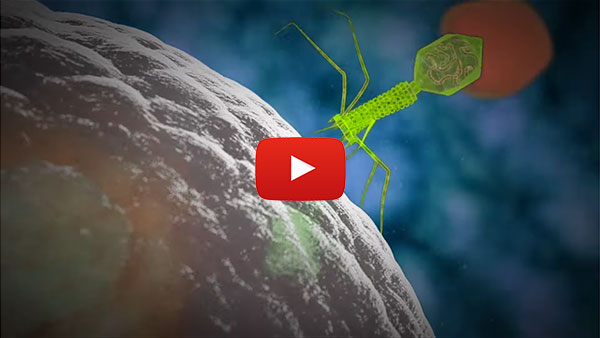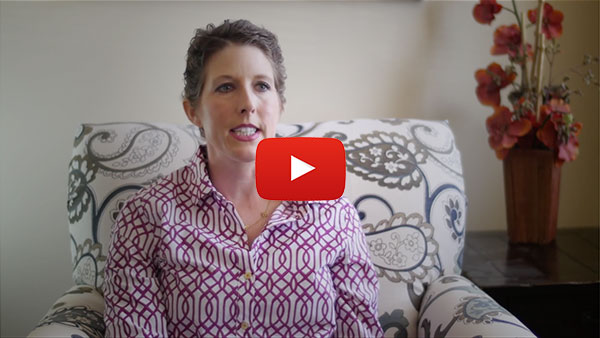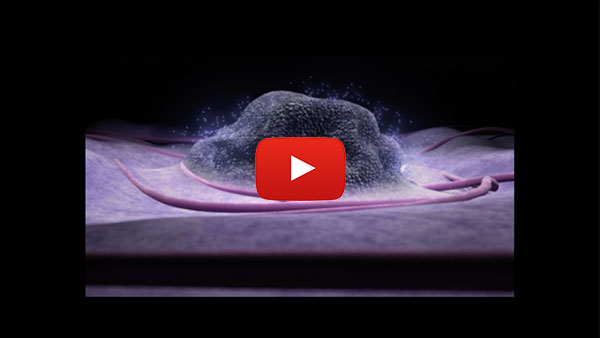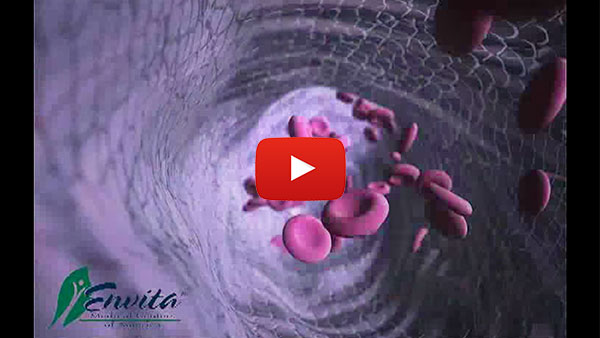Inflammation is the Fuse that Ignites Cancer

In Latin, the word "inflammation" means "I ignite, set alight," and like gasoline, that's exactly what it does to cancer. A microenvironment of chronic inflammation can increase the risk of cancer, bolster chemotherapy resistance and turn on oncogenes, genes that can turn cells into tumors.
Most importantly, inflammation promotes the spreading and mutating of cancer cells while continuing to push the mutations within the cancer cells' development. Inflammation also enhances the tumors' ability to recruit blood supply (angiogenesis) and more.
Powerful Insights to Cancer Treatment
Unfortunately, inflammation and cancer signaling pathways are ignored for most cancers in the oncology world. Basically, inflammation is one of the leading factors that contribute to uncontrolled growth of cancers cells and spreading (metastasis). In this article we will explain helpful approaches to give cancer patients an edge in treatment and overall cancer planning.
Uncovering and treating the cause of inflammation, rather than just treating the symptoms, is an important key when fighting cancer or chronic disease. To get to the root cause of the inflammation, we have to learn what causes inflammation and how to deal with it. Let's get started.
What Causes Inflammation?
Inflammation is the body's response to tissue damage, caused by physical injury, ischemic injury (caused by an insufficient supply of blood to an organ), infection, exposure to toxins or other types of trauma. The body's inflammatory response causes cellular changes and immune responses that result in repair of the damaged tissue and cellular proliferation (growth) at the site of the injured tissue.
Inflammation can become chronic if the cause of the inflammation persists or certain control mechanisms in charge of shutting down the process fail. When these inflammatory responses become chronic, cell mutation and proliferation can result, often creating an environment that is conducive to the development of cancer. The so-called "perfect storm" is an extreme challenge that cancer patients face.
The cancer a patient begins with becomes very different in the later stages, becoming more mutated and complex to treat. Various signaling pathways are key contributors to creating epigenetic changes on the outside of the cell, switching on these internal mutations. Therefore, treating the inflammatory causes is always important.
The Link Between Cancer and Inflammation
Despite popular belief, less than five percent of cancer is solely genetic (in the sense of being directly inherited by family members). Most cancers have a cause and those causes bring about chronic inflammation as part of the process. New research suggests an emerging link between infection, epigenetics and cancer. Changes catalyzed by pathogenic inflammation can transform cells into cancerous tumors. According to ScienceDirect.com, "Several types of inflammation—differing by cause, mechanism, outcome, and intensity—can promote cancer development and progression [1].” A study by the Cancer Research Institute also agrees, saying, "Chronic inflammation plays a multifaceted role in carcinogenesis [2].”
Many cancers are linked to viruses or bacteria that promote reversible, epigenetic changes in the body's cells. At minimum, 20 percent or more of cancers are linked to infectious disease, according to the Journal of American Medical Associates.
Here are some well-known examples:
- Human Papillomavirus leads to cervical cancer
- Hepatitis C leads to liver cancer
- Epstein Barr leads to lymphoma
- Herpes Virus 6 leads to brain cancer
- Helicobacter Pylori leads to stomach cancer
We are thought to only have fully recognized about 13% of infections worldwide, making infection a bigger contributor than typically reported. These infections bring about changes and chronic inflammation as well.
One thing anyone with chronic inflammation will tell you is that it causes heat. Abnormal body heat can also lead to thermogenesis and enhance metabolic spread of cancer during metastasis. The locations with the most metabolic hotspots may indicate the most common areas of cancer spread. This is seen in animal testing where various cancer images have been superimposed.
Inflammation is known to cause other such changes in the microenvironment of cells. Cells often undergo adaptive changes to survive stressful or toxic environments. These adaptive changes can include: an increased expression of antioxidant enzymes; increased anaerobic respiration; and the development of angiogenic factors. This adaptation is usually transient, however, and allows normal cells to survive only until the toxic condition is alleviated.
That means it's not enough to have a strategy to kill cancer cells – chronic inflammation needs to be blocked and stopped at its roots to prevent the cancer from mutating and spreading.
Gene Pathways that Fuel Cancer Spread When Inflamed
According to a study by the Division of Hepatology and Gene Therapy at the CIMA-Universidad de Navarra in Spain, "Epidemiological studies have established that many tumors occur in association with persistent inflammation. One clear example of inflammation-related cancer is hepatocellular carcinoma (HCC). HCC slowly unfolds on a background of chronic inflammation triggered by exposure to infectious agents (hepatotropic viruses), toxic compounds (ethanol), or metabolic impairment [3].”
Besides these inflammatory mediators, mounting evidence points to the deregulation of specific growth and survival-related pathways in HCC development. Among them is the pathway governed by the epidermal growth factor receptor (EGFR), which can be bound and activated by a broad family of ligands. Of special relevance is the fact that the EGFR engages in extensive crosstalk with other signaling pathways, serving as a "signaling hub" for an increasing list of growth factors, cytokines, and inflammatory mediators. In this review, we summarize the most recent evidences supporting a role for the EGFR system in inflammation-related cell signaling, with special emphasis in liver inflammation and HCC. The molecular dissection of the pathways connecting the inflammatory reaction and neoplasia will facilitate the development of novel and more effective antitumor strategies.
Oncogenes can push for the greater expression of EGFR because tumors have genes just like healthy cells. One of the most highly expressed receptors is called Epidermal Growth Factor Receptor (EGFR), which is normally used to tell cells to grow. It is found in all cancer cells. However, EGFR over-expression has been linked to numerous cancers, such as lung, prostate, anal and many others. The greater the expression of EGFR means faster growth and enhanced spreading. The bottom line is, inflammation can contribute to it.
One of the most highly expressed receptors is called Epidermal Growth Factor Receptor (EGFR), which is normally used to tell cells to grow. It is found in all cancer cells. However, EGFR over-expression has been linked to numerous cancers, such as lung, prostate, anal and many others. The greater the expression of EGFR means faster growth and enhanced spreading. The bottom line is that inflammation can contribute to it. Increased expression is also associated with increased chemotherapy resistance, leading to tumors that are untreatable. When you combine chronic inflammation, these misused signaling pathways and overgrowth, you get a cancer that is "immortalized." Treating a metastatic cancer is hard enough, but when it's of this magnitude it can be extremely difficult, if not impossible, especially when ignoring the chronic inflammation at the cancer cells' metabolic core.
Our group uses many different approaches to get at the root of the cancer, rather than just a "one size fits all" protocol that offers little to no assistance to inflammation and cancer signaling.
How does inflammation occur? Multiple ways, but one of the most common is when an enzyme called lipoxygenase turns essential fatty acids into a compound called leukotriene that is produced in white blood cells. Leukotriene tells the cells to respond to trauma, but when they don't stop ringing the alarm bells, it leads to chronic inflammation. However, if you take a drug that is a lipoxygenase inhibitor, it aids in turning off these pathways, stopping the growth and spread of cells, including helping to slow down cancer cells. Other examples have been the combined use of NSAID's and Statins in the prevention of esophageal cancers with patients with Barrett's Esophagitis. The combination reduced incidents of esophageal cancer by 81%.
How does inflammation occur? Multiple ways, but one of the most common is when an enzyme called lipoxygenase turns essential fatty acids into a compound called leukotriene that is produced in white blood cells. Leukotriene tells the cells to respond to trauma, but when they don't stop ringing the alarm bells, it leads to chronic inflammation. However, if you take a drug that is a lipoxygenase inhibitor, it aids in turning off these pathways, stopping the growth and spread of cells, including helping to slow down cancer cells.
Daily aspirin use studies show promise in the prevention of colorectal cancers. These are a few examples pointing to the importance of inflammation pathways in cancer, however, using more comprehensive inflammation and signaling treatment may enhance all other cancer modalities being used.
Other examples have been the combined use of NSAID's and Statins in the prevention of esophageal cancers with patients with Barrett's Esophagitis. The combination reduced incidents of esophageal cancer by 81%.
In addition, daily aspirin use studies show promise in the prevention of colorectal cancers. These are a few examples pointing to the importance of inflammation pathways in cancer, however using more comprehensive inflammation and signaling treatment may enhance all other cancer modalities being used.
Another important protein complex, known as NF-Kappa-B, controls the transcription of DNA. It's involved in cellular responses to stimuli, including stress, ultraviolet irradiation, free radicals, cytokines, oxidized low-density lipoprotein and bacterial or viral antigens.
According to News-Medical.net, "[NF-Kappa-B] spends most of its life in the cell's cytoplasm, quietly awaiting orders. But when extracellular signals - of a viral or bacterial invasion, for example - set off chemical alarms, the cell unchains this warhorse, allowing it to go into the nucleus where it spurs a flurry of defensive activity, including the transcription of genes that trigger inflammation, promote cell proliferation and undermine cell death [4].”
These are only a few of the many signaling and inflammation pathways that we target in treatment. When these pathways to inflammation are understood, it makes it that much easier to prevent cancer from growing, spreading or outgrowing treatment via resistance. Helping enhance cancer treatment as a whole must involve strong comprehensive anti-inflammatory and signaling treatments.
Summary
Treating inflammation is only one part of a complete treatment plan – there are many other aspects to consider, including nutrition, building the immune system, targeting chemotherapy and much more. However, if you can slow down the growth of cancer, it makes it much easier to maintain and hopefully, overcome. Otherwise, if it keeps growing, the cancer can outgrow any treatment. It becomes a race to slow down the metabolic growth and spread of cancer enough for other therapies to do their job effectively. The best part about these treatments is they are helpful for most, if not all cancers. If you have any questions about your cancer, or would like to know more about how integrative medicine might help, please contact us today.





